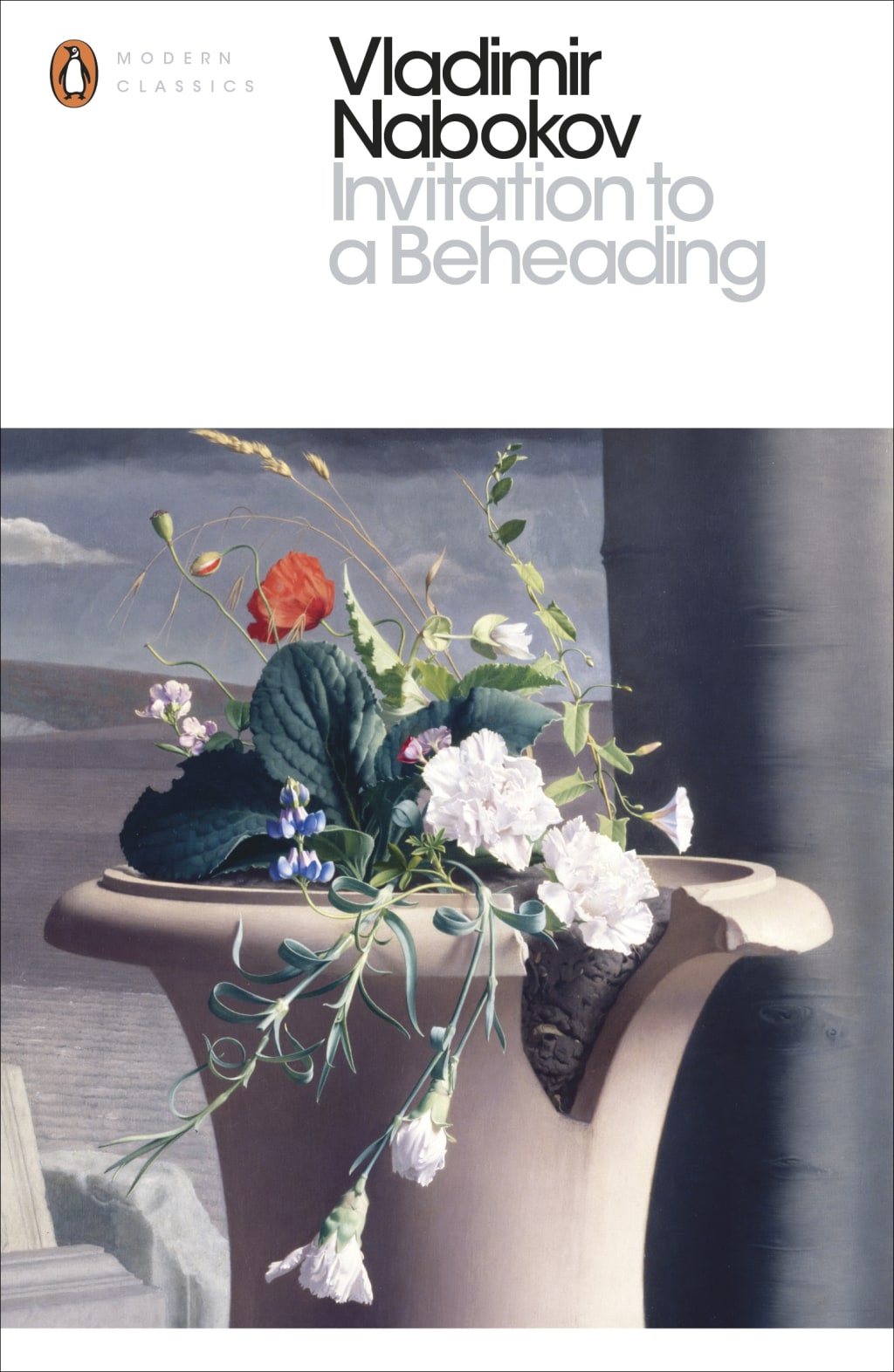"Invitation to a Beheading" by Vladimir Nabokov
A Reading Experience (Pt.52)

Often, people ask me what my favourite Nabokov novel is and I have to say that the one I have read that is most unlike his other works is possibly “Invitation to a Beheading” because it represents something that is familiar to us in his bibliography that is written in an entirely different way. We get the question of morality and happiness, the difference between right and wrong and then, we get it written in a style that is often described as “kafkaesque” though I beg to differ. I first read this book when I was sixteen years’ old and nearing the summer of my life before sixth form. It was a scorching hot day and reading Nabokov whilst drinking juice was often considered the high life of the teenage literary nerd. This book is about a man called Cincinnatus C. who is due to be executed and often, we experience the various morality filters of different characters, including guards, family members and the protagonist himself. The characters I always associated most with the morality question were the protagonist, Cincinnatus and a man called Pierre, who mostly plays the sort of almost villainous shadowy trait of humanity in which we do things we are not proud of but often do them anyway. Pierre seems to represent not only morality, but the obsession and want to do something good, but the decision to do what one wants instead. It’s almost very Nietzsche of him I think. This book is written in a style that often, I would not associate with Nabokov - it written almost exclusively in an omniscient style, but also with an aspect of trickery. It is like Nabokov is trying to trick us into an ending. Some may say that the ending is anti-climatic but I believe that it is often more philosophical than we first think and subsequent readings have shown me this.
The biggest theme, I believe, in this book is knowledge and deception. It seems like the two of them are linked together in a way that makes it almost impossible to determine the true meaning of the novel. When it comes to the way in which the theme is used, we have a lot of information and yet, we are given almost no information at all. It is left to the reader to make up their own mind about the characters when the novel finally comes to its amazingly philosophical close. When I was reading this for the second or third time I noticed something about the way in which we see deception arise - trickery is often considered a case in many Nabokov novels and so, when deception arises, it is mostly done through some aspect of dark humour and nearing the final act of the novel. This means that the downfall of the protagonist is complete with a character who has tricked, deceived or offered them a deal in which it is well-known they will lose and in “Invitation to a Beheading” all three of these happen. When the downfall of the protagonist happens, we have developed an affinity with the character - and so we are empathetic with them. But when the deception is finally revealed, we are presented with an aspect of dark humour in which we now make up our mind with what we are going to be satisfied with. Ultimately, it is act of deception we find smarter and so, when it comes to the ending - we can focus more on the philosophical aspect and not the empathy we had once for the protagonist who is going through a horrid time.
When I re-read this novel next, this is something I want to focus on. Throughout my degrees, I have loved studying the strange satisfaction humans find in tragedy and so, with this Nabokov novel which is considered a tragedy, I want to know that apart from the dark humour, what is it that satisfies us as readers about the novel’s second half and why it does. There may be many reasons and yet, I have never actually met another person who has read this book. I would love to understand more about the inner-workings of the plot, Nabokov’s applied philosophies and the way in which good and bad are morphed around in this novel.
About the Creator
Annie Kapur
200K+ Reads on Vocal.
English Lecturer
🎓Literature & Writing (B.A)
🎓Film & Writing (M.A)
🎓Secondary English Education (PgDipEd) (QTS)
📍Birmingham, UK






Comments
There are no comments for this story
Be the first to respond and start the conversation.